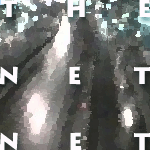The Debt to Pleasure is the first novel by John Lanchester, a literary
type with foodie
credentials, and it begins "This is not a conventional cookbook." This
begins a clever
exercise in keeping the reader off-balance, never quite sure what sort of
text this
is--memoir or confession, cookbook or mystery story.
Tarquin Winot, the verbose and digressively informative narrator, starts
out with a
chummy mixture of memoir and recipes. We're nearly in the world of Peter
Mayle or
M.F.K. Fisher, with food chat and remarks about cuisines and place and
culture. At first
it's only in glimpses that another character is revealed--a hint of malice,
an aside with
creepy implications--and the picture of a truly monstrous ego lurking inside the
would-be cultured carapace comes, more and more quickly, into focus.
Any reader who likes baroquely self-revealing characters will revel in the
artfulness of
Tarquin's unappealing moments of revelation. Tarquin is like a richer, more
worldly
Ignatius Reilly, born to a classier couple but just as self-absorbed.
Lanchester has a nice,
tight control of his narrator's torrents of verbosity, and a good sense of
comic pacing.
This style isn't everyone's cup of tea, admittedly, but if you don't throw
the book across
the room in annoyance after the first three pages, if you allow yourself to
be tickled by
the excesses of the style, the story is assured and effective. Only in a
few scattered
places does the smoothness of the characterization lurch a little and,
instead of
murmuring a hint about the real nature of the narrator, gives you a bop on
the head.
Tarquin, halfway through the book, speaking in parenthesis:
Perhaps all description is self-description, and every word we
utter is
merely a fragment toward an autobiography of our bodies, our
consciousnesses, its full
pattern discernible, like the desert lines at Nazca, only by an observer
whose position
and motive strain our imagination to envisage--UFO landing-pad guide marks?
Colossal astronomical calendars? Keats: "A man's life of any worth is a
continual
allegory." Discuss.
Even though he achieves it by oblique means, Lanchester also manages to
make
this a foodie book, and at the same time deliver a good spoof of the plummy,
aristocratic tones of the classic foodie writer with fetishes about France
and a penchant
for quoting Brillat-Savarin. Lanchester's art is in using this maneuver to,
so to speak,
cook us like lobsters who don't quite realize the water is gradually
heating up to boiling
point. Before we know it we've left the Gourmet Magazine zone and are slipping
inexorably into something closer to an Edward Gorey story, and then,
dropping all
pretense at amusing morbidity, into something considerably nastier.
Not to launch spoilers. This isn't an arty book, but it's a novel of
considerable
artfulness. The absent sculptor Bartholomew is one of the best
obliquely-described
characters I've encountered, and I finally found out what an aioli is. You
can't ask much
more of a book which, at the end, proves to be something close to a thriller.



